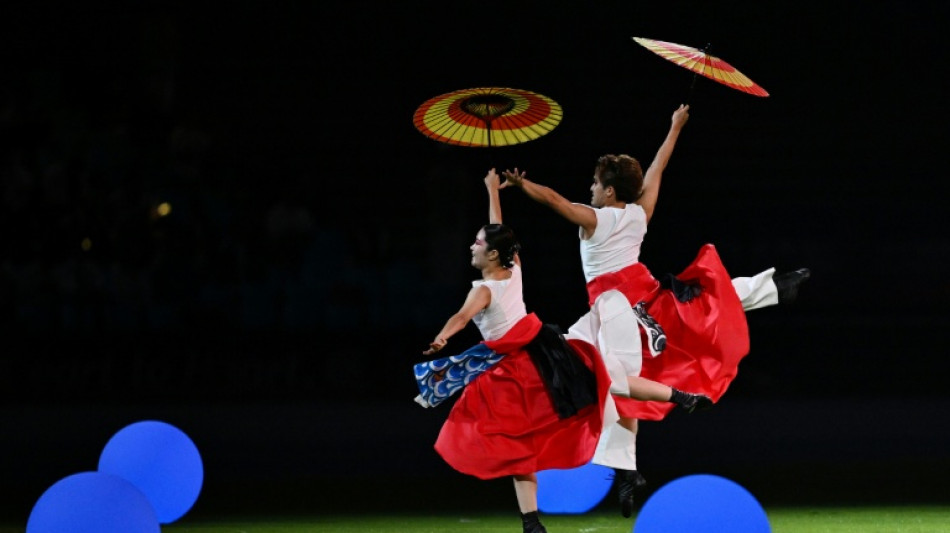

'Floating village' to house thousands of Asian Games athletes
Athletes at next year's Asian Games in Japan will stay on a "floating village" cruise ship and in converted shipping containers, an organising official told AFP, defending the cost-cutting move.
The plan will see 4,600 athletes and officials housed on the ship for the duration of the Games, which are being held in Nagoya and the wider Aichi area from September 19 to October 4, 2026.
Organisers will lease a luxury cruise liner that will be docked at Nagoya's port.
A further 2,400 people will stay in temporary shelters made from shipping containers a short bus ride away, with the two locations accommodating about half of the 15,000 athletes and officials expected at the Games.
The rest will be in other accommodation, including in Tokyo where the swimming competition will take place.
Local organisers were keen to avoid the cost of building a traditional athletes' village, but Asian Olympic chiefs warned that any alternative must make sure athletes can meet and mingle together.
Kazuhiro Yagi, vice-secretary general of the Aichi-Nagoya Games organising committee, told AFP that they had listened to athletes' opinions and wanted to "provide a service that satisfies them".
"The cruise ship and container houses are in different locations, but they are only about 10 minutes apart by shuttle bus," he said.
"I don't think it will be a problem at all with regards to being able to interact with other athletes.
"There is an aquarium and various other entertainment facilities in the area. I think they'll be able to take a break, relax and come together."
The 2023 Games in China's Hangzhou had about 12,000 athletes, making it the biggest Asian Games in history, with more competitors than the Olympics.
- Lack of recognition -
The Asian Games are back in Japan for the first time since Hiroshima in 1994.
The country has held several major sports events since then including the pandemic-delayed Olympics in 2021, football's World Cup in 2002 and the Rugby World Cup in 2019.
Yagi admits that there "still isn't enough awareness" that the Aichi-Nagoya Games are happening, and says more needs to be done to spread the word.
"I don't think there is anyone in Japan who hasn't heard of the Olympics or Paralympics, but my personal feeling is that maybe only half the population knows the Asian Games," he said.
"Young people weren't born when it was last held here 32 years ago, so I'd like them to find out that it's a great event."
The Asian Games feature an eclectic mix of events, with bridge, kabaddi and dragon boat racing rubbing shoulders with traditional Olympic sports such as athletics, swimming, gymnastics and football.
- eSports for elderly -
The Aichi-Nagoya Games has added mixed martial arts to the programme and Yagi hopes its debut will showcase Asia's diverse martial arts traditions and attract new fans.
"We want to appeal to the needs of young people, so including new events is essential," he said.
"We want to include mixed martial arts so that we can get the younger generation interested in sport."
Esports proved a huge hit on its full Asian Games debut in Hangzhou, with fans packing into the futuristic 4,500-seat arena to watch star gamers like South Korea's Lee "Faker" Sang-hyeok.
Aichi-Nagoya will be the first time Japan has hosted an eSports competition on such a large scale, and Yagi thinks its benefits will be felt by more than just young people.
"Esports can help elderly people who don't get a chance to exercise much," he said.
"You use your fingers and make detailed movements, which I have heard is good for combating dementia.
"I think this is a good chance for people of a wide range of ages to find out more about eSports."
H.Roth--FFMTZ




